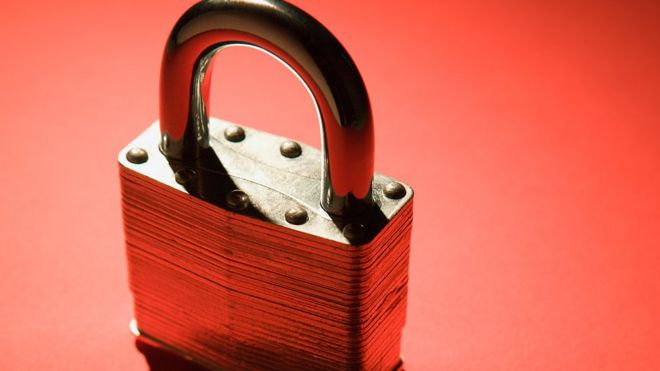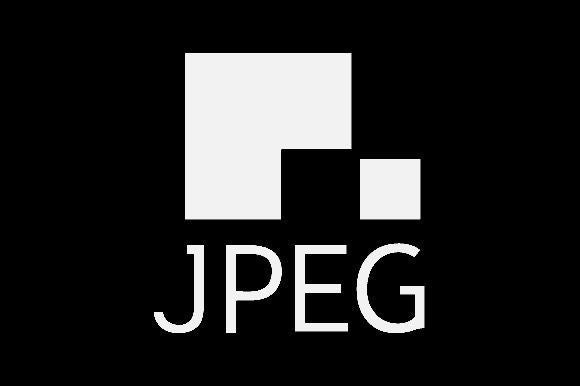- Член од
- 24 април 2008
- Мислења
- 11.024
- Поени од реакции
- 12.528
Се повеќе станува јасно колку TPP е наследник на неуспешниот договор за спречување на фалсификувањето ACTA.
Со TPP, исто како и со ACTA, се предвидени затворски казни, како и одземање на имот за тие кои преку Интернет споделуваат пиратски копии од софтверски, музички и филмски производи без разлика дали воопшто остваруваат некаков профит од ваквите споделувања на дигитални содржини преку Интернет или не.
Кристално истите казни се предвидени и за тие кои преку Интернет споделуваат кракови или алатки за кракување на дигиталната DRM заштита на софтверски производи.
Слични казни се предвидени и за новинари и за тајни сведоци и разузнавачи кои споделуваат тајни владини и/или корпоративни информации.
И исто како и во случаите со неуспешните SOPA, PIPA и ACTA, така и со TPP, предвидено е Интернет провајдерите да ја играат улогата на сајбер полицајци кои ќе ги шпионираат сопствените корисници 24/7, а полициските служби не само што ќе можат да одземаат компјутерска опрема, туку ќе можат и да исклучуваат Интернет домеини без судски налог.
https://www.eff.org/deeplinks/2015/02/go-prison-sharing-files-thats-what-hollywood-wants-secret-tpp-deal
Go to Prison for File Sharing? That's What Hollywood Wants in the Secret TPP Deal
Со TPP, исто како и со ACTA, се предвидени затворски казни, како и одземање на имот за тие кои преку Интернет споделуваат пиратски копии од софтверски, музички и филмски производи без разлика дали воопшто остваруваат некаков профит од ваквите споделувања на дигитални содржини преку Интернет или не.
Кристално истите казни се предвидени и за тие кои преку Интернет споделуваат кракови или алатки за кракување на дигиталната DRM заштита на софтверски производи.
Слични казни се предвидени и за новинари и за тајни сведоци и разузнавачи кои споделуваат тајни владини и/или корпоративни информации.
И исто како и во случаите со неуспешните SOPA, PIPA и ACTA, така и со TPP, предвидено е Интернет провајдерите да ја играат улогата на сајбер полицајци кои ќе ги шпионираат сопствените корисници 24/7, а полициските служби не само што ќе можат да одземаат компјутерска опрема, туку ќе можат и да исклучуваат Интернет домеини без судски налог.
https://www.eff.org/deeplinks/2015/02/go-prison-sharing-files-thats-what-hollywood-wants-secret-tpp-deal
Go to Prison for File Sharing? That's What Hollywood Wants in the Secret TPP Deal
February 12, 2015 | By Maira Sutton
The Trans-Pacific Partnership agreement (TPP) poses massive threats to users in a dizzying number of ways. It will force other TPP signatories to accept the United States' excessive copyright terms of a minimum of life of the author plus 70 years, while locking the US to the same lengths so it will be harder to shorten them in the future. It contains DRM anti-circumvention provisions that will make it a crime to tinker with, hack, re-sell, preserve, and otherwise control any number of digital files and devices that you own. The TPP will encourage ISPs to monitor and police their users, likely leading to more censorship measures such as the blockage and filtering of content online in the name of copyright enforcement. And in the most recent leak of the TPP's Intellectual Property chapter, we found an even more alarming provision on trade secrets that could be used to crackdown on journalists and whistleblowers who report on corporate wrongdoing.
Here, we'd like to explore yet another set of rules in TPP that will chill users' rights. Those are the criminal enforcement provisions, which based upon the latest leak from May 2014 is still a contested and unresolved issue. It's about whether users could be jailed or hit with debilitating fines over allegations of copyright infringement.
Dangerously Low Threshold of Criminality
The US is pushing for a broad definition of a criminal violation of copyright, where even noncommercial activities could get people convicted of a crime. The leak also shows that Canada has opposed this definition. Canada supports language in which criminal remedies would only apply to cases where someone infringed explicitly for commercial purposes.
This distinction is crucial. Commercial infringement, where an infringer sells unauthorized copies of content for financial gain, is and should be a crime. But that's not what the US is pushing for—it's trying to get language passed in TPP that would make a criminal out of anyone who simply shares or otherwise makes available copyrighted works on a “commercial scale.”
As anyone who has ever had a meme go viral knows, it is very easy to distribute content on a commercial scale online, even without it being a money-making operation. That means fans who distribute subtitles to foreign movies or anime, or archivists and librarians who preserve and upload old books, videos, games, or music, could go to jail or face huge fines for their work. Someone who makes a remix film and puts it online could be under threat. Such a broad definition is ripe for abuse, and we've seen such abuse happen many times before.
Fair use, and other copyright exceptions and limitations frameworks like fair dealing, have been under constant attack by rightsholder groups who try to undermine and chip away at our rights as users to do things with copyrighted content. Given this reality, these criminal enforcement rules could go further to intimidate and discourage users from exercising their rights to use and share content for purposes such as parody, education, and access for the disabled.
Penalties That Must be "Sufficiently High"
The penalties themselves could be enough to intimidate and punish users in a way that is grossly disproportionate to the crime. Based upon the leak, which showed no opposition in key sections, it seems TPP negotiators have already agreed to more vague provisions that would oblige countries to enact prison sentences and monetary fines that are "sufficiently high" to deter people from infringing again. Here is the text:
penalties that include sentences of imprisonment as well as monetary fines sufficiently high to provide a deterrent to future acts of infringement, consistently with the level of penalties applied for crimes of a corresponding gravity;
Already in many countries, criminal punishments for copyright grossly outweigh penalties for acts that are comparatively more harmful to others. So the question as to what crimes copyright infringement corresponds to in "gravity" is obscure. What's more alarming is that countries without existing criminal penalties or whose penalties are not "sufficiently high" to satisfy the US government, may be forced to enact harsher rules. The US Trade Representative (USTR) could use the certification process, at the behest of rightsholder groups, to arm-twist nations into passing more severe penalties, even after the TPP is signed and ratified. The USTR has had a long history of pressuring other nations into enacting extreme IP policies, so it would not be out of the realm of possibility.
Property Seizure and Asset Forfeiture
The TPP's copyright provisions even require countries to enable judges to unilaterally order the seizure, destruction, or forfeiture of anything that can be "traceable to infringing activity", has been used in the "creation of pirated copyright goods", or is "documentary evidence relevant to the alleged offense". Under such obligations, law enforcement could become ever more empowered to seize laptops, servers, or even domain names.
Domain name seizure in the name of copyright enforcement is not new to us in the US, nor to people running websites from abroad. But these provisions open the door to the passage of ever more oppressive measures to enable governments to get an order from a judge to seize websites and devices. The provision also says that the government can act even without a formal complaint from the copyright holder. So in places where the government chooses to use the force of copyright to censor its critics, this could be even more disastrous.
Criminalization of Getting Around DRM
We've continued to raise this issue, but it's always worth mentioning—the TPP exports the United States' criminal laws on digital rights management, or DRM. The TPP could lead to policies where users will be charged with crimes for circumventing, or sharing knowledge or tools on how to circumvent DRM for financial gain as long as they have "reasonable ground to know" that it's illegal to do so. Chile, however, opposes this vague language because it could lead to criminal penalties for innocent users.
The most recent leak of the Intellectual Property chapter revealed new exceptions that would let public interest organizations—such as libraries and educational institutions—get around DRM to access copyrighted content for uses protected by fair use or fair dealing, or content that may simply be in the public domain. But even if it's legal, it would be difficult for them to get around DRM since they may not be equipped with the knowledge to do it on their own. If someone else tries to do a public service for them by creating these tools for legally-protected purposes, they could still be put in jail or face huge fines.
Conclusion
Like the various other digital copyright enforcement provisions in TPP, the criminal enforcement language loosely reflects the United States' DMCA but is abstracted enough that the US can pressure other nations to enact rules that are much worse for users. It's therefore far from comforting when the White House claims that the TPP's copyright rules would not "change US law"—we're still exporting bad rules to other nations, while binding ourselves to obligations that may prevent US lawmakers from reforming it for the better. These rules were passed in the US through cycles of corrupt policy laundering. Now, the TPP is the latest step in this trend of increasingly draconian copyright rules passing through opaque, corporate-captured processes.
These excessive criminal copyright rules are what we get when Big Content has access to powerful, secretive rule-making institutions. We get rules that would send users to prison, force them to pay debilitating fines, or have their property seized or destroyed in the name of copyright enforcement. This is yet another reason why we need to stop the TPP—to put an end to this seemingly endless progression towards ever more chilling copyright restrictions and enforcement.
If you're in the US, please call on your representatives to oppose Fast Track for TPP and other undemocratic trade deals with harmful digital policies.
Последно уредено:











